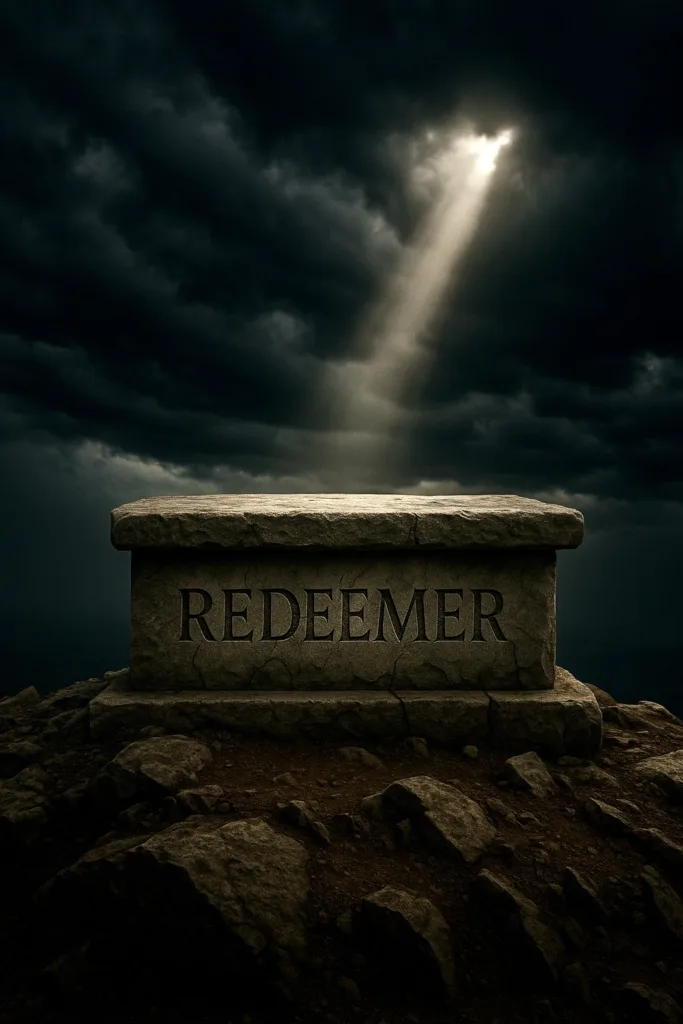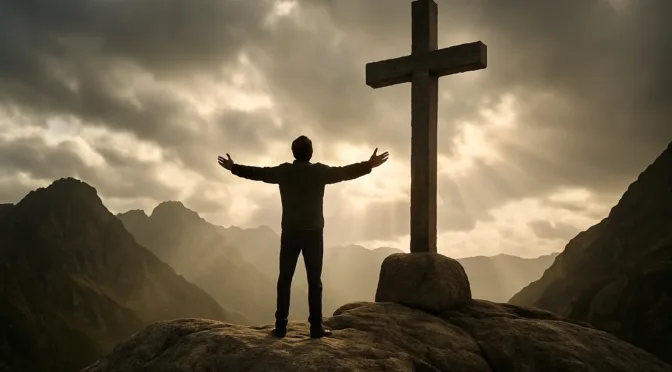A Call to Trust the Living God
Brethren, I do not write to you with clever speech or lofty words, but with a burden burning in my bones: Trust in the Living God! For in these days, many have turned aside. They have leaned on their own understanding, trusted in the arm of flesh, and sought the approval of men instead of the presence of the Lord. But the Spirit cries out—return to the Rock, return to the One who lives and cannot die! Let the voice of Job rise again in the assembly: “For I know that my Redeemer and Vindicator lives, and at last He will stand upon the earth” (Job 19:25 AMP).
Job did not speak these words in comfort. He spoke them while sitting in ashes, his flesh broken, his friends accusing him falsely. He had lost all earthly things—his wealth, his children, his health—and yet he declared what many of us fear to believe: God is alive, and He will vindicate the righteous. This is not the cry of a man deceived by empty religion. This is the cry of one who has encountered the living God. Though Job’s skin was failing, his eyes of faith saw a day when he would behold God, not as a stranger, but as a Friend on his side. “And my eyes shall behold Him, and not as a stranger! My heart pines away and is consumed within me” (Job 19:27 AMP). This demonstrates Job’s profound trust in the Living God despite his trials.

What a mystery! What glory! And what warning to those who mock the suffering and speak rashly in judgment. Job rebuked the presumptuous, saying, “Then beware and be afraid of the sword [of divine vengeance]… that you may know there is a judgment” (Job 19:29 AMP). Hear me, beloved: the Lord is not slow to act. He sees every injustice, every hidden accusation, every burden laid on the innocent. And there is a judgment! God will not be mocked—what a man sows, that shall he also reap. Therefore, walk in humility. Judge not with the eyes of flesh, but intercede with the heart of Christ, who alone is able to save and to destroy. This reinforces the call to trust in God who lives beyond human comprehension.
And now, let us lift our voices with David, the sweet psalmist of Israel, who declared: “The Lord liveth, and blessed be my rock; and exalted be the God of the rock of my salvation” (2 Samuel 22:47 KJV). This was not a poetic line for David—it was his battle cry. In caves and in courts, among lions and liars, David clung to the Rock. When men rose against him, when his own sin threatened to destroy him, he returned again and again to the mercy and faithfulness of the living God. So must we. Truly, David exemplified trust in the Living God in every trial.
I beseech you, brethren, by the mercies of God: do not trust in the wisdom of this age, nor in your possessions, nor in the fleeting comfort of applause. The Lord liveth! He is not a concept nor a ritual, but a risen King, Yeshua our Redeemer, who stood upon the earth, bore our griefs, was pierced for our transgressions, and rose in triumph! He now intercedes for us at the right hand of the Father. Will you trust Him? Will you rely on Him? Or will you continue chasing shadows?
You must choose. Either build your house on the Rock or watch it fall when the storm comes. But as for me, I will say: “The Lord liveth, and blessed be my Rock!” For when my flesh is weak, He is strong. When I am falsely accused, He defends me. When I fall, He lifts me up. And in the end, I too shall see Him—not as a stranger, but as my Advocate, my Redeemer, my Friend. It is in trusting the living God that one’s foundation is secure.
Return, O Church, to your first love. Return, O weary soul, to the Rock that does not move. Trust in the Living God—and you will never be put to shame.
⸻
Prayer
O Living God, our Rock and our Redeemer, we repent of every false trust. We lay down our pride, our fears, our idols. You alone are worthy. You alone are sure. Cause us to see You with our own eyes—not as a stranger, but as our faithful Friend. Let our lives declare, “The Lord liveth!” May every fear be silenced, every accusation fall powerless, and every heart be anchored in Your presence. In the name of Yeshua, the Risen One, amen.
⸻





